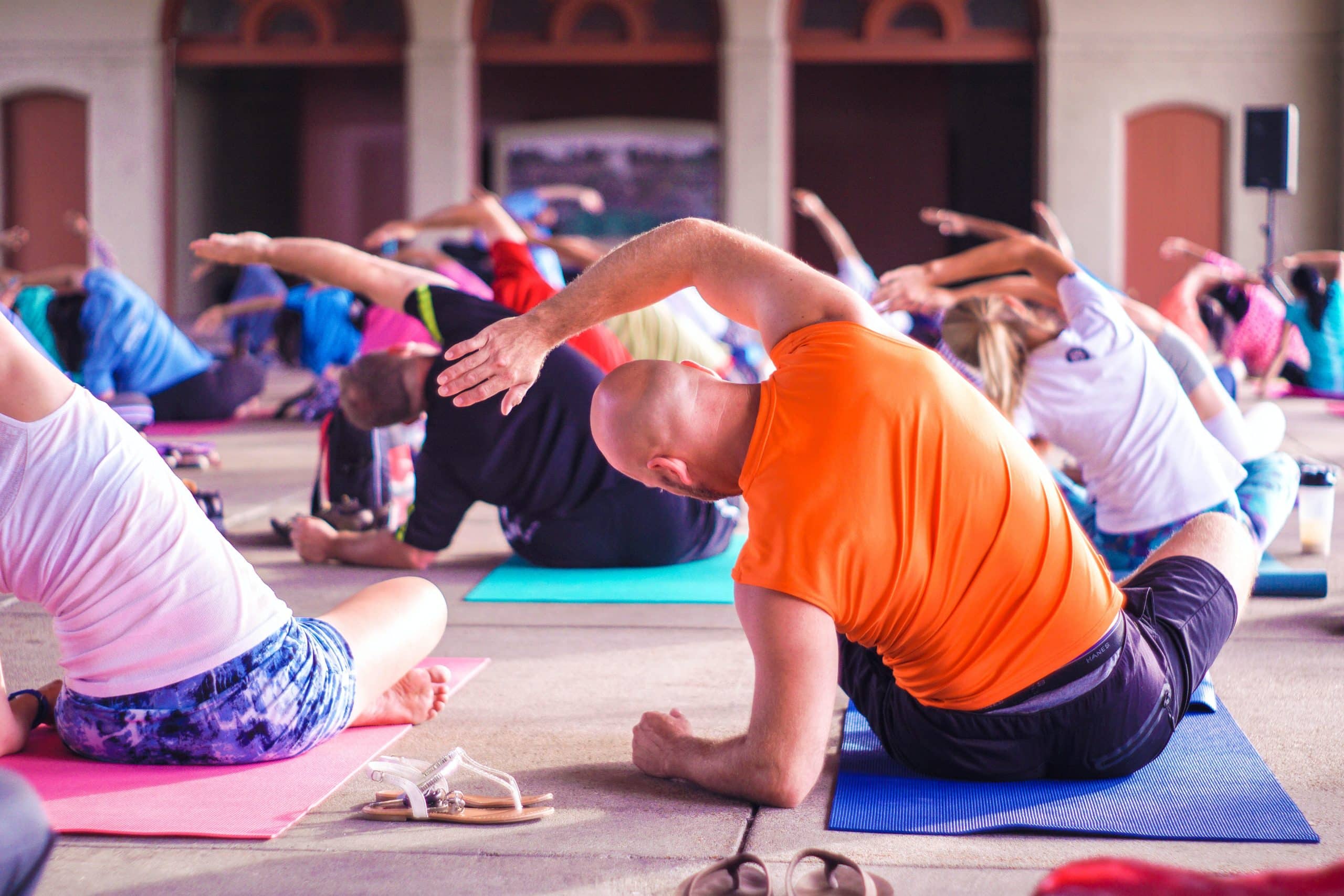How yoga transforms body and mind

Yoga, an ancient practice with its origin from the Indian subcontinent, has been revered for centuries for its extraordinary benefits on the body and mind. This profound discipline goes beyond mere physical exercise; it is an integration of body, mind, and spirit that brings about a state of peace and inner tranquility.
In this article, we will delve deep into the essence of yoga, its impacts on our bodies, the changes it imposes on our minds, and the overall betterment it brings to our lives.
A lire en complément : The future of sports after the pandemic
The Physical Transformation through Yoga
Yoga is not just about twisting, turning, and straining your body. Rather, it is about the harmonious alignment of your body, enhancing your physical health and wellbeing. Here, we will explore the myriad ways yoga helps improve our physical health.
Yoga is a comprehensive fitness regimen that offers an array of postures designed to strengthen your body. With a mixture of standing, seated, and balancing postures, yoga ensures a full-body workout. It improves flexibility, boosts strength, and enhances balance. Regular practice of yoga helps to improve body posture, preventing pain and discomfort associated with incorrect postures.
A lire également : How to manage stress in competitions
A significant benefit of yoga is its impact on the body’s internal systems. It improves circulatory health, aids digestion, boosts immunity, and improves the functioning of the respiratory system. The deep, mindful breathing associated with yoga helps improve lung capacity and oxygenates the body, leaving you feeling energized and refreshed.
Thus, yoga helps sculpt and tone your body, reduces excess fat, and improves your physical health.
The Power of Yoga on the Mind
While the physical changes that yoga induces are evident and tangible, the transformations it brings about in the mind are profound and far-reaching. Let’s delve into the ways yoga mediates the mind’s well-being.
Yoga is an excellent stress-buster. The deep, rhythmic breaths you take during yoga practice induce a sense of calm and relaxation, helping to reduce stress and anxiety. It lowers the levels of cortisol, the stress hormone, in the body, leading to a decrease in stress, anxiety, and depression.
Meditation, a vital part of yoga, promotes mindfulness, enabling you to stay present in the moment, without being caught up in past regrets or future anxieties. This mindfulness leads to improved focus and concentration, mental clarity, and better decision-making abilities.
In essence, yoga has the power to bring about a positive change in our mental health, helping us lead a more calm, peaceful, and balanced life.
How Yoga Enhances Overall Health
The integration of body, mind, and spirit that yoga brings about transcends the boundaries of physical and mental health. The practice seeps into your life, transforming your overall health and wellbeing. Let’s see how.
Yoga instills a sense of discipline and routine, enhancing your overall lifestyle. It improves sleep quality, boosts energy levels, and promotes overall well-being.
Yoga also plays a significant role in managing chronic health conditions. It can help control blood sugar levels in people with diabetes, decrease symptoms of asthma, reduce blood pressure, and relieve symptoms of arthritis.
Yoga: An Ally in Personal Growth
Yoga does not just change your body and mind; it also brings about a transformation in your personal growth. Let’s look into how yoga helps in personal development.
Yoga cultivates self-awareness, paving the way for personal growth and self-improvement. Through meditation and mindful practice, you become more aware of your thoughts, emotions, and reactions.
This increased self-awareness helps you to understand yourself better, identify your strengths and weaknesses, and work towards improving yourself.
Also, the practice of yoga amplifies your will power, a crucial attribute for personal growth. It helps you cultivate discipline, perseverance, and resilience, which can significantly contribute to your personal and professional life.
Yoga as a Catalyst for Positive Change
Yoga is not just a practice but a way of life, encompassing everything that you do, say, and feel. With regular practice, you can bring about a significant positive change in your life.
Yoga cultivates positive thinking, helping you to view life with a more optimistic lens. It encourages you to embrace challenges, knowing that they are opportunities for growth.
Additionally, yoga helps build resilience, enabling you to bounce back from setbacks more effectively. It instills a sense of calm and tranquility, helping you manage the ups and downs of life with grace and poise.
In essence, yoga can be a powerful tool for personal transformation, helping you live your life to the fullest.
Embracing Yoga for Stress Management
Stress management is a crucial aspect of maintaining good mental health, and yoga has been recognized as an excellent tool for managing stress. In this section, we will explore how yoga can help manage stress effectively.
The primary elements of a yoga practice, including mindful movements, deep breathing, and meditation, all contribute to reducing stress levels. While practicing yoga, the mind redirects its focus to the body and breath, thereby diminishing external worries and stressors.
Deep, rhythmic breathing, a key component of yoga, activates the body’s relaxation response, leading to lower heart rate and blood pressure, both of which are associated with the body’s stress response. By learning to control the breath, one can control the body’s reaction to stress, bringing about a sense of calm and peace.
Moreover, yoga’s emphasis on being present in the moment helps to alleviate worries about the past or future, often a big source of stress. This mindfulness can translate to other areas of life, helping to reduce stress levels even when not actively practicing yoga.
Another way yoga helps manage stress is by promoting better sleep. The relaxation achieved through yoga can improve sleep quality, and good sleep is vital in managing stress and maintaining good mental health.
In conclusion, yoga not only transforms the body but also the mind, making it an effective practice for stress management.
Hatha Yoga: The Foundation for Body and Mind Transformation
When considering the varied types of yoga, Hatha yoga serves as a foundation for many others. Known for its slower pace and focus on basic poses, it is particularly beneficial for beginners and those looking for physical and mental transformation.
In Hatha yoga, each pose is held for a few breaths, allowing practitioners to fully engage with each posture and reap its specific benefits. This slower pace can help improve strength, flexibility, and balance-all key components in the transform body process.
Hatha yoga’s focus on deep breathing and meditation also merges the body and mind, promoting mental clarity and calmness. This integration of body mind can lead to greater self-awareness and mindfulness, which are essential aspects of mental health and personal growth.
Practicing yoga, particularly Hatha yoga, also cultivates discipline and routine-two key elements in personal growth. By committing to a regular yoga practice, one can develop these qualities that can then translate to other areas of life.
Overall, Hatha yoga can be an effective method to kickstart your journey in yoga, offering comprehensive physical and mental benefits.
Conclusion
In conclusion, the practice of yoga is a powerful tool in transforming the body and mind. It’s more than just a workout; it’s a holistic approach to health and well-being.
Physically, yoga can sculpt and tone the body, improve posture, and enhance the functioning of the body’s internal systems. Mentally, it can reduce stress, promote mindfulness, and foster greater self-awareness. Furthermore, yoga can help manage chronic health conditions such as high blood pressure and diabetes.
Moreover, yoga extends beyond just physical postures; it’s a way of life that fosters personal growth and positive change. The self-awareness, discipline, and resilience cultivated by regular yoga practice can transform our personal and professional lives.
Whether you’re a beginner wanting to start your yoga journey or an experienced yogi, the benefits yoga brings to the body and mind are enormous. So why wait? Start practicing yoga today and experience the transformative power of this ancient discipline.
